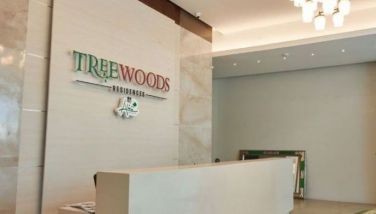Airbnb vows to comply with government regulations
CEBU, Philippines — Home sharing portal pledged to work with government regulators around the world, including its fast growing destination Philippines, amid issues on taxes and other regulations.
Airbnb co-founder Nathan Blecharczyk made this commitment yesterday during the Pacific Asia Travel Association (PATA) Summit 2019 held at the Radisson Blu Hotel Cebu.
Blecharczyk said that the company is ready to work and cooperate with every government regulatory system in every country they are in, saying the home sharing paradigm, though quite new, wants to be a part of the revenue contributing industries.
“The sharing economy is a new paradigm, and it’s not being anticipated [by government regulators],” said the young billionaire innovator, adding that the company understood that this kind of digital business provides grey areas in terms of fitting in to the existing laws and regulations in most governments.
“We want to build allies with the government because we are building a long term business,” said Blecharczyk.
In the Philippines, Airbnb has over 60 thousand listings and it’s growing dramatically.
There are now 500 thousand homes listed in the home sharing site in Asia Pacific alone.
Last year, Airbnb hosted 12 million people in Asia Pacific, translated to US$ 1 billion contribution to the economy.
Worldwide, the 11-year-old start-up success story, recorded a whooping 6 million listings in 21 thousand cities around the world.
The company is now worth US$30 billion.
Just like other countries, Philippines still has to fine tune on how to regulate or cover the home sharing platform to the country’s existing rules in hospitality, and even tax strategies for Airbnb hosts.
Meanwhile, in a separate earlier interview with Department of Tourism (DOT) secretary Bernadette Romulo-Puyat, she said implementing regulations or standard monitoring among AirBnB operators is not yet being prioritized by the Philippine government.
Although Airbnb is a growing market, the Philippines is still new in adapting it, and it is not yet a major industry in the tourism sector, Puyat said.
The mainstream hospitality industry in the Philippines also claims of not being affected by AirBnB. In fact Puyat said this service is even encouraged as tourism continues to grow.
Earlier, the Philippine Hotel Owners Association (PHOA) lobbied to DOT for an occupancy tax on Airbnb hosts because they felt Airbnb poses unfair competition with hotels.
On the other hand, Hotel, Resort and Restaurant Association of Cebu (HRRAC) president Carlo B. Suarez recently said that Airbnb entirely has its own market niche and its entry the hospitality sector is not a threat nor it affects the hotels.
However, what is crucial for travelers to consider is their safety and security while availing of the accommodation facilities floated in the airbnb platform.
“We hope these travelers are aware that safety, security and hygiene are compromised,” said Suarez, who is also the general manager for Grand Hotel.
Good service, provision of proper linens and professional security measures for staying guests, added Suarez.
- Latest
























